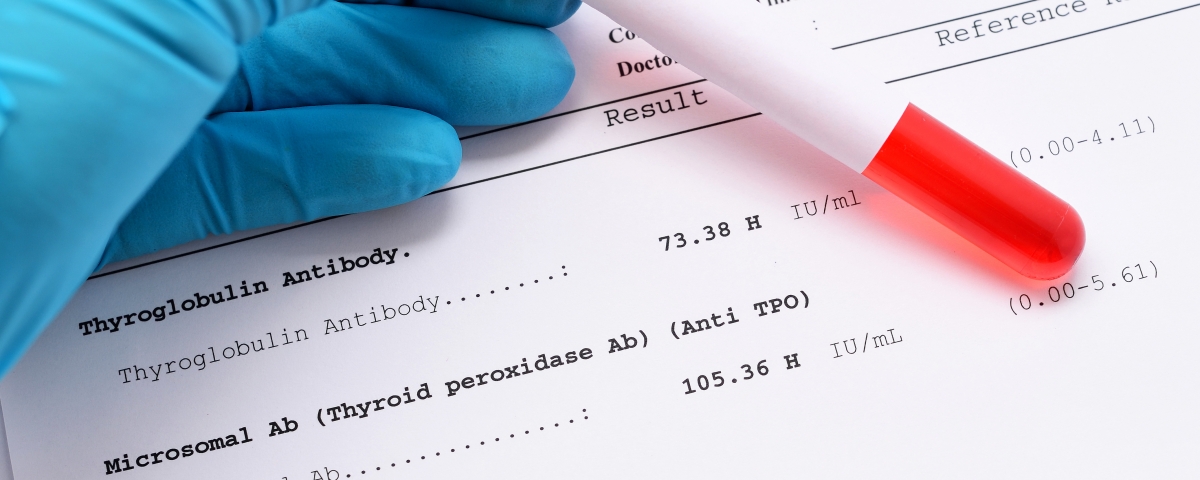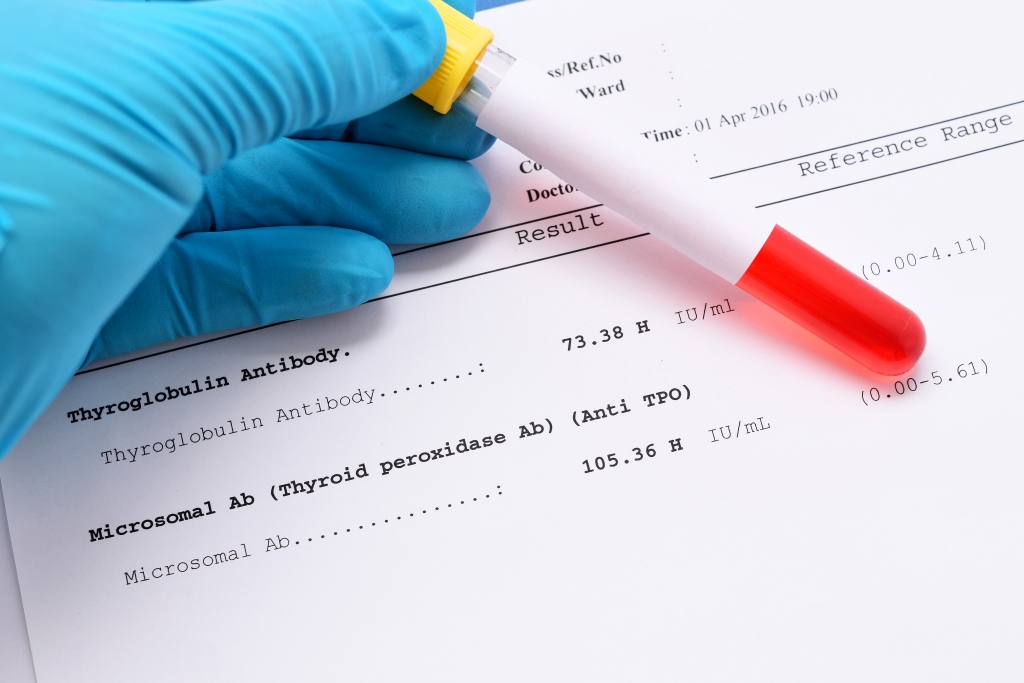
by Jenna Righter, RD, CLC, LD, CLT
I’m going to go out on a limb and say the majority of you know someone diagnosed with Hypothyroidism… but what about Hashimoto’s? Sound like a bizarre medical diagnosis?! I’m hoping to help clear up some confusion and provide information about why it’s important to find out if you have Hashimotos if you’ve already been diagnosed with Hypothyroidism.
So what is Hypothyroidism?
Hypothyroidism is when your body does not make enough thyroid hormone. This can affect a person’s heart rate, central and peripheral nervous system, weight, metabolism, body temperature, cholesterol levels and for women, their menstrual cycles. Whoa! According to NHANES data, this affects about 4% of Americans. One in eight women will develop a thyroid condition in their lifetime!
Symptoms of Hypothyroidism include:
- Abnormal periods
- Coarse dry hair
- Cold intolerance
- Constipation
- Depression
- Fatigue
- Hair loss
- Infertility
- Irritability
- Joint pain
- Memory loss / forgetfulness
- Muscle cramps, aches, and stiffness
- Reduced sex drive
- Rough dry skin
- Loss of the outer third of your eyebrows
- Feelings of weakness
- Weight gain or difficulty losing weight

So what is Hashimoto’s Disease?
Hashimoto’s Disease is an autoimmune disease in which the immune system attacks the thyroid gland, leading to a damaged thyroid that can no longer produce thyroid hormone. Recent studies show that up to 90% of people with Hypothyroidism have Hashimoto’s.
Initially, physical symptoms can look like:
- Enlarged thyroid
- Voice hoarseness
- Trouble breathing
- Neck/throat tenderness
A person can also experience symptoms of transient hyperthyroidism. As the thyroid tissue is destroyed, extra thyroid hormone can be released into your body. After your thyroid has been damaged enough, it will stop producing thyroid hormone and symptoms of hypothyroidism will appear (see first list).
It is important to note that these are also symptoms that can be related to other medical conditions.
How is Hypothyroidism usually diagnosed?
- A blood test of your TSH.
How is Hashimoto’s usually diagnosed?
Multiple blood tests including:
- TSH
- TPO antibodies
- TG antibodies
- Free T4
- Free T3
- Reverse T3
I would also recommend an ultrasound to assess and track damage and the possibility of nodules.
Unfortunately, many healthcare providers will only check a TSH level. This does not give the entire picture of your thyroid function, and therefore… can leave many people with Hashimoto’s undiagnosed.

What are some complications that can go along with Hashimoto’s?
- Chest pain
- Joint pain
- Increased risk of heart disease
- Increased risk of thyroid cancer
- Increased risk of miscarriage
Those diagnosed with Hashimotos are also at a higher risk of having or developing other autoimmune diseases such as Type 1 diabetes, multiple sclerosis, rheumatoid arthritis, celiac disease, Addison’s disease, pernicious anemia, hypoparathyroidism.
Can Hashimotos be cured?
My clients ask me this all the time! Unfortunately, once you’ve been diagnosed, you will never be “rid” of Hashimotos, BUT there is the possibility of remission. The goal is to find the root cause and remove potential triggers that are increasing your antibodies. Food sensitivity and micronutrient testing are two very valuable biometric tests to get thyroid patients on the right track. This is where your dietitian can come in and help you do some detective work! 🙂 There is so much more to these diagnoses – root causes, food triggers, healing your gut etc. !
All of the dietitians at our office are very knowledgeable about thyroid conditions. Make an appointment and let us help you improve your symptoms and get your health on track. 🙂



